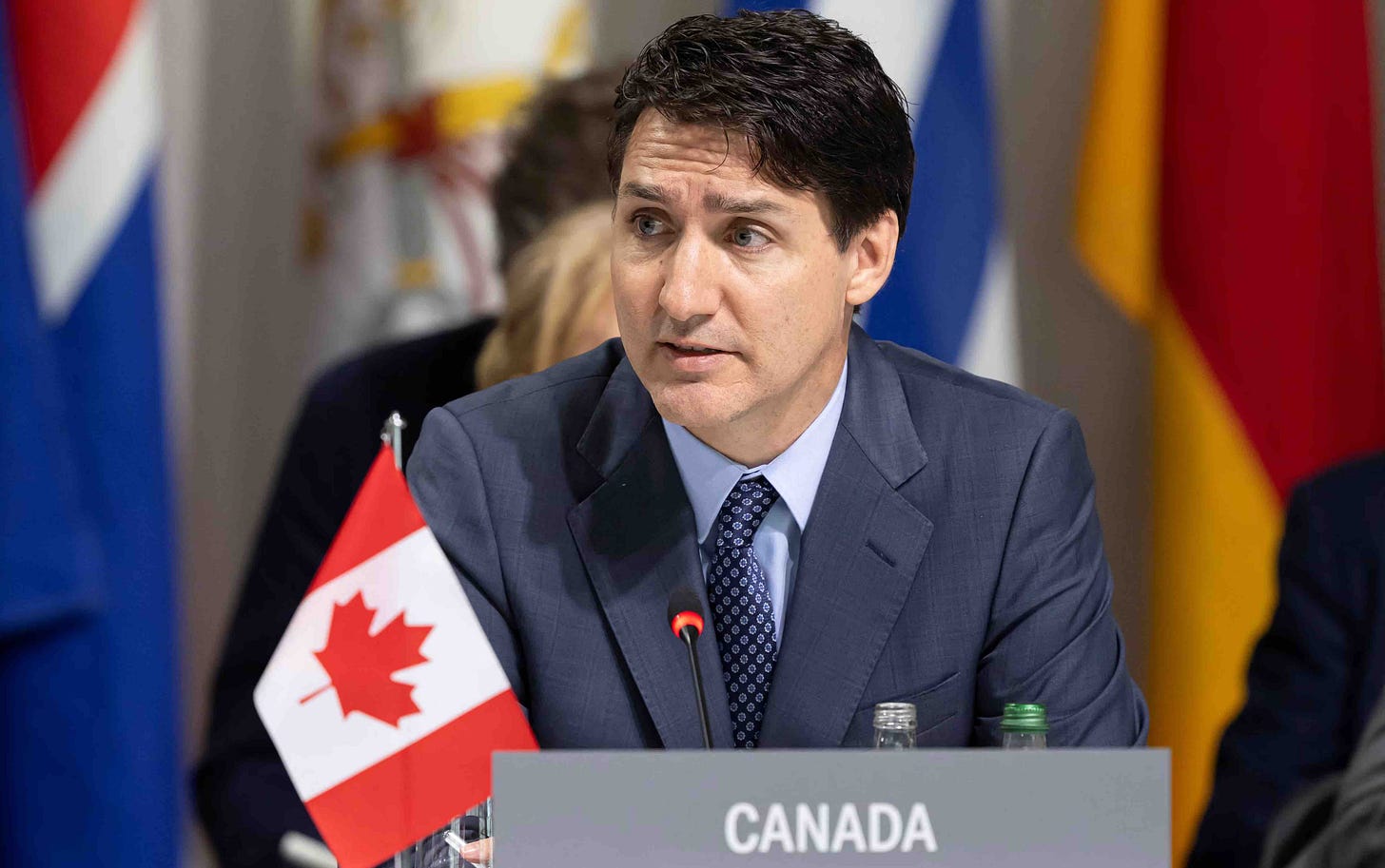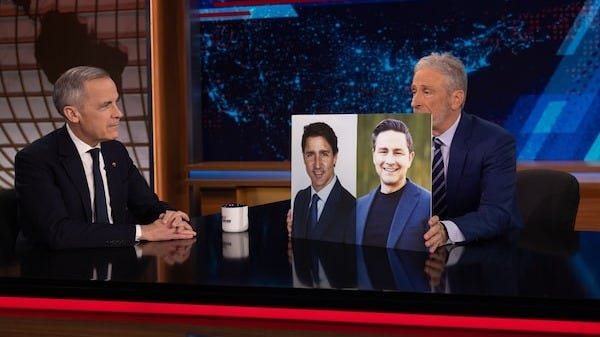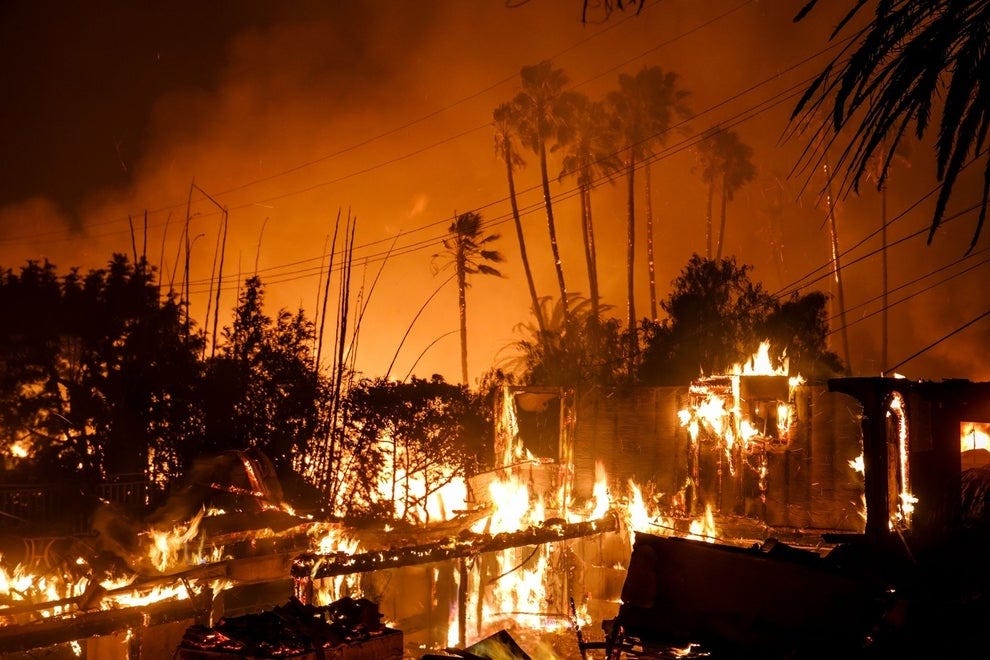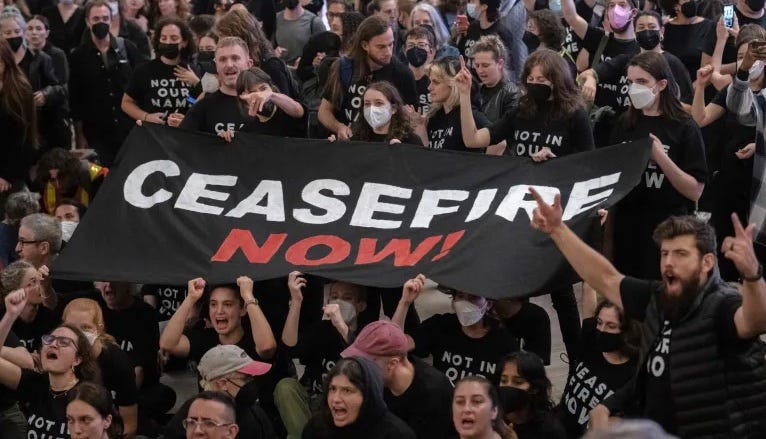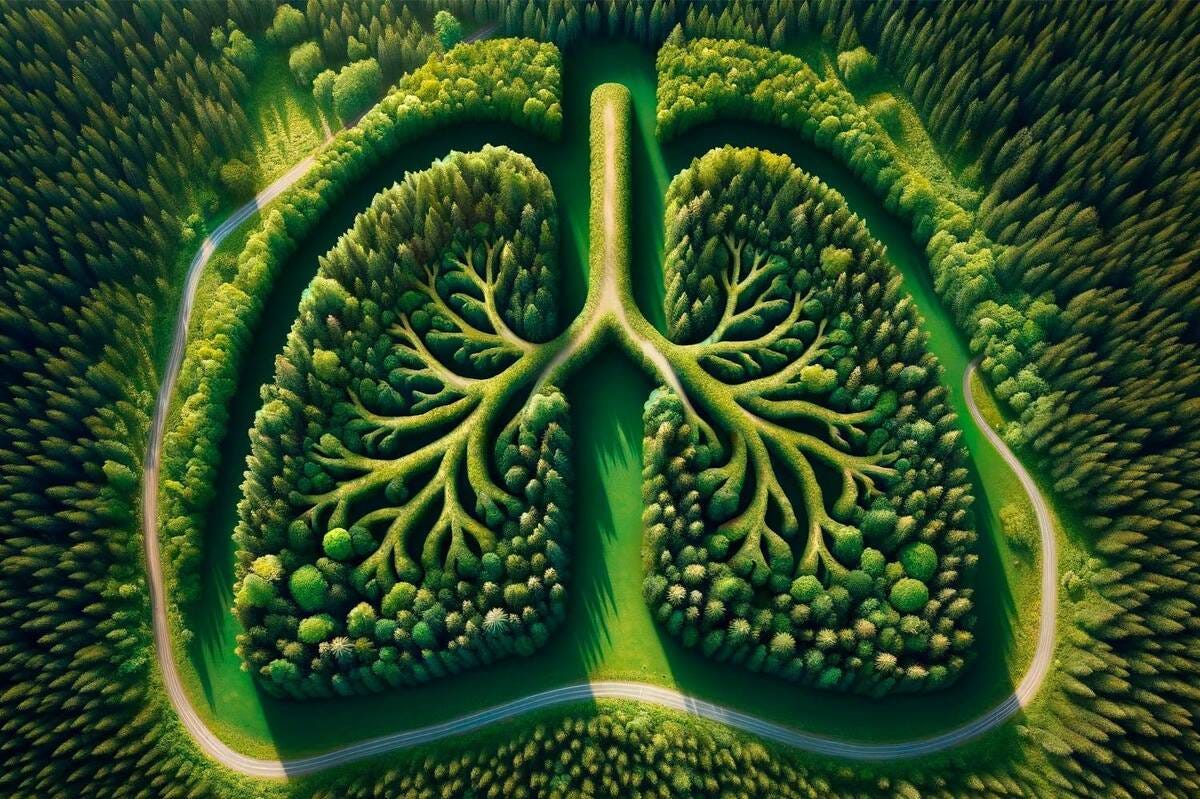Good morning, It’s Wednesday, January 15th. In today’s news, we review the foreign interference documents, Canada’s healthcare system is teetering on the edge of collapse, Mark Carney signals his unofficial entry into the Liberal leadership race, Los Angeles utility company sued over Palisades fire water shortage, and much more.
First time reading the daily blend? Sign up here.
Smoke and Mirrors: Reviewing the Foreign Interference Documents
The Trudeau government recently announced that its long-awaited Foreign Interference Commission Report will be published by the end of this month. Having reviewed some of the key documents leading up to this release, a troubling story begins to unfold—one of missed opportunities, misplaced priorities, and a government seemingly indifferent to the threats at Canada’s doorstep.
Elections Canada had flagged "loopholes in leadership contests" as a major vulnerability to interference, yet the Trudeau government moved forward with leadership races without addressing these concerns. This decision paints a picture of apathy toward the integrity of Canada’s democratic process, a sentiment echoed in the government’s broader inaction on foreign interference. Despite its public commitments to "protecting democracy," no substantial measures have been taken to close these gaps or strengthen defences.
The documents reveal that foreign interference in Canada isn’t a singular threat but a multitude of dangers emanating from various sources. Diaspora groups—ranging from Sikhs to Chinese and Russian expats—have provided compelling evidence of the risks posed by nations like the People’s Republic of China (PRC), India, and Russia. However, there is significant disagreement over which country poses the greatest threat. Chinese-Canadians point to the PRC, Sikh-Canadians identify India, and other groups highlight different actors. What is clear is that Canada, as a self-proclaimed "post-national state," is struggling to navigate a world where its sovereignty is under constant pressure.
Modern foreign interference is far from subtle. It includes spying, bribery, intimidation, and even acts of violence. This is not the Cold War-era intrigue of espionage novels; it is an evolving, sophisticated assault on democratic systems. And yet, despite the severity of these tactics, the government appears powerless to confront them.
Curiously, one notable absence in the discussion is US interference. While Canada has a long history of American influence in its politics, there was surprisingly little attention given to this in the documents. When US interference did come up, it seemed more focused on defending Trudeau from controversies, such as the rumoured Buffalo Chronicle story involving an alleged NDA with a former student, rather than addressing systemic issues.
Adding to the frustration is the misalignment of government spending priorities. While millions have been allocated to the Foreign Interference Commission, this pales in comparison to the hundreds of millions spent on suppressing the Convoy protests—an action critics argue targeted peaceful protestors and political dissent rather than addressing pressing national threats.
The commission’s mandate is to offer recommendations on combating foreign interference, yet its timing raises questions about its efficacy. With the government in a state of prorogation, how would these recommendations even be implemented? This, combined with the lack of meaningful action so far, makes the entire endeavour feel like an exercise in political theatre rather than a genuine attempt to safeguard Canada’s democracy.
Ultimately, the Foreign Interference Commission appears to be a costly smokescreen, one more addition to a legacy of wasted taxpayer dollars. As Canada grapples with an increasingly interconnected and volatile world, the government’s response to these challenges seems woefully inadequate. This commission may serve as a symbolic capstone to Trudeau’s political career—a legacy of missed opportunities and eroding public trust.
Canada’s Healthcare Crisis: High Costs, Long Waits, and Growing Challenges
Canada’s healthcare system is teetering on the edge of crisis. According to a C.D. Howe Institute report authored by Tingting Zhang, Canada ranks ninth out of 10 high-income countries, outperforming only the United States. Despite a relatively high quality of care for those fortunate enough to access it, Canada lags behind international averages in access to care, administrative efficiency, and equity—and ranks dead last in timeliness.
For nearly half of Canadians, healthcare delays are now the norm. A previous poll revealed that overwhelming wait times have led 47% of Canadians to wait over two months for specialist appointments, while 59% faced similar delays for elective surgeries. Alarmingly, 11% of Canadians sought care abroad to avoid these bottlenecks, further highlighting the system’s failure to meet its citizens' needs.
Meanwhile, costs continue to soar. In 2024, Canada’s healthcare spending reached $372 billion—approximately $9,054 per Canadian—making it one of the most expensive systems in the OECD, behind only France and Sweden. Yet, despite this immense financial outlay, the system remains inefficient and ill-equipped to handle future demands.
The situation is projected to worsen. Another C.D. Howe report estimates Canada will need $2 trillion to address the challenges posed by an aging population. Without significant reform, these costs will further strain an already overburdened and inefficient system. Canada’s healthcare model, long touted as a point of national pride, now faces mounting scrutiny. Source.
Mark Carney’s Liberal Leadership Bid: The “Outsider” Backed by Trudeau’s Inner Circle
Mark Carney’s appearance on The Daily Show signalled his unofficial entry into the Liberal leadership race. Sparring with host Jon Stewart, Carney framed himself as the “outsider” candidate, untainted by government missteps. “I am an outsider,” Carney declared, painting a stark contrast to his critics and even taking aim at Conservative Leader Pierre Poilievre, whom Stewart compared to “a villain in a Karate Kid movie.” Carney’s rhetoric suggested that his economic expertise and distance from Trudeau’s administration made him uniquely qualified to lead Canada through challenges like inflation, unaffordable housing, and looming U.S. tariffs.
But Carney’s “outsider” claim crumbles under scrutiny. Reports confirm that Justin Trudeau’s inner circle is rallying around his campaign. Gerald Butts, Katie Telford, and Navdeep Bains—key architects of Trudeau’s tenure—are actively supporting Carney. Sources reveal that Telford has even been making calls to secure endorsements on his behalf. This endorsement from Trudeau’s core team undermines Carney’s claim of independence, casting him as the handpicked successor rather than a fresh face for the Liberal Party.
Carney’s leadership ambitions also come with controversy. He has signalled plans to target Canada’s oil and gas industry to meet climate goals, identifying it as the source of nearly 30% of the nation’s emissions. However, this stance risks alienating key regions and industries, particularly as Canadians face mounting economic pressures. Meanwhile, Carney’s global credibility has taken a hit with the implosion of the Net Zero Asset Managers Initiative, a project he spearheaded. High-profile exits from major firms like BlackRock and JPMorgan expose cracks in his climate strategy and raise questions about his ability to deliver on bold promises.
As Trudeau’s inner circle anoints Carney, his claim to outsider status rings hollow. For Liberals and Canadians alike, the question remains: can Carney chart a new course, or is he merely a polished extension of Trudeau’s legacy?
Los Angeles Utility Company Sued Over Palisades Fire Water Shortage
A lawsuit has been filed against the Los Angeles Department of Water and Power (LADWP) for allegedly mishandling water supplies critical in fighting the Palisades Fire, which destroyed much of Pacific Palisades. The lawsuit claims that the LADWP failed to maintain water in the nearby Santa Ynez Reservoir, which was empty when the fire broke out, leaving firefighters with inadequate water to combat the blaze. It should be noted that the Santa Ynez Reservoir can hold as much as 117 million gallons (443 million litres) of water, although it has been empty since February 2024.
The complaint further accuses the utility of delaying repairs to cut costs. The Palisades fire, which killed at least eight people and destroyed thousands of homes, continues to burn. Governor Gavin Newsom has called for an investigation into the water shortage during the fire, with LADWP agreeing to review the situation. This lawsuit follows other legal actions related to California wildfires. More
Hamas and Israel Nearing Ceasefire Agreement
Hamas and Israel are nearing a potential ceasefire agreement, with Hamas accepting a draft proposal in principle. The deal involves the release of 33 hostages, including women, children, and elderly individuals, in exchange for hundreds of Palestinian prisoners. The talks, mediated by Qatar, have made significant progress but are not finalized, with Israel's Cabinet yet to approve the plan. The agreement includes humanitarian aid entering Gaza and displaced Palestinians returning home, with a phased process for hostages and prisoners. Tensions remain within Israel’s government, with key ministers opposing the deal. More
International Underwater Cable Attacks by Russia, China are No ‘Mere Coincidence’ Warns EU - More
François-Philippe Champagne and Former BC Premier Christy Clark Bow Out of Liberal Leadership Race - More
Radical Islamic Group Cancels Ontario Conference Under Pressure of Being Named a Terrorist Group - More
Manhattan's Congestion Toll on Drivers Sees Traffic Reduction of About 43,000 Cars Per Day - More
Spain Plans to Tackle Housing Crisis with 100% Tax on Homes Bought by Foreigners - More
China Weighs Sale of TikTok US to Elon Musk
Chinese officials are considering a scenario where Elon Musk acquires TikTok’s US operations if the app is banned in the US due to national security concerns. The Chinese government prefers that TikTok remains under the control of its parent company, ByteDance, which is currently fighting the ban. Musk, who has close ties with former President Donald Trump, could potentially take control of TikTok's US business through his company X (formerly Twitter). This acquisition could help Musk attract advertisers and leverage data for his AI company, xAI. However, it’s unclear how the deal would unfold, given complexities involving US regulations, ByteDance's interests, and Musk’s existing business dealings in both the US and China. The fate of TikTok remains uncertain as the legal battle continues. More
Climate Group ‘Net Zero Asset Managers’ Suspends Activities Days After BlackRock Quits - More
Meta to Cut Roughly 5% of Staff, Targeting Lowest Performers - More
Plants Absorb 31% More CO2 Than Previously Estimated, New Study Finds
A new study has found that plants globally absorb 31% more carbon dioxide than previously estimated, amounting to 157 petagrams of carbon per year, up from 120 petagrams. This updated figure is crucial for improving Earth system models used to predict future climate conditions. The research, led by Cornell University and Oak Ridge National Laboratory, used a novel method tracking carbonyl sulphide (OCS) in plants, which mirrors CO2 movement during photosynthesis. The study highlighted that tropical rainforests, in particular, are a more significant carbon sink than previously understood. Accurate estimates of plant carbon absorption are vital for refining climate change predictions. More
The Next Leg of the New Moon Race is About to Kick Off — and it Could Be the Most Exciting Yet - More
Tiger Woods’ Debut in TGL Ends in Landslide Defeat
Tiger Woods made his debut in the new TGL (Tiger Woods and Rory McIlroy’s golf league) on Tuesday night at Palm Beach State College. The event, featuring Woods alongside Kevin Kisner and Max Homa from Jupiter Links Golf Club, saw them face off against the Los Angeles Golf Club team, which included Justin Rose, Collin Morikawa, and Sahith Theegala. Despite a lopsided score of 12-1 in favour of Los Angeles, Woods remained positive and engaged throughout, even with moments of frustration, such as hitting a wedge into the water. The match highlighted the new indoor, high-tech format, with electrifying introductions and a unique golf experience for viewers. More
UFC Releases Former Champion And Future Hall-Of-Famer, Holly Holm - More
US Man Charged with Stalking WNBA Star Caitlin Clark - More
Study: 1 of Every 5 Job Postings is Actually Fake—In Some Industries, as many as 1 in 3 Listings are Ghost Jobs
Restaurant Charges $120 to Add Pineapple on Pizza
On This Day in 2009, Chesley Sullenberger landed US Airways Flight 1549 on the Hudson River shortly after takeoff from LaGuardia Airport in NYC. All passengers and crew members survive in what becomes known as the "Miracle on the Hudson"






